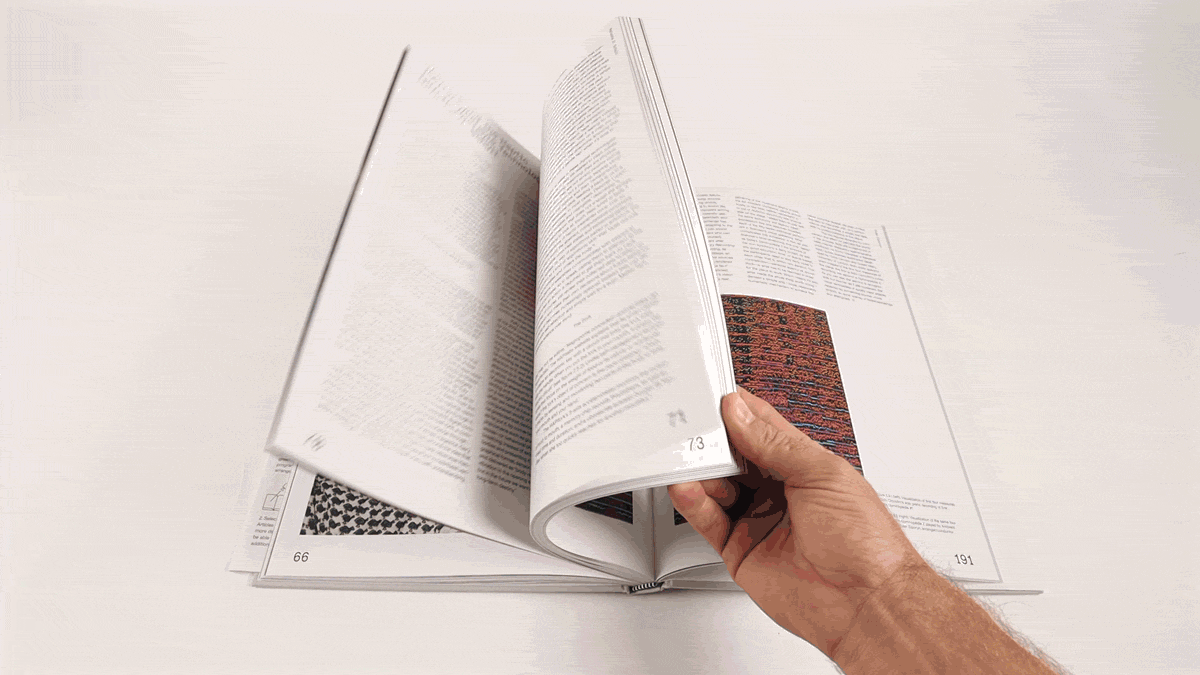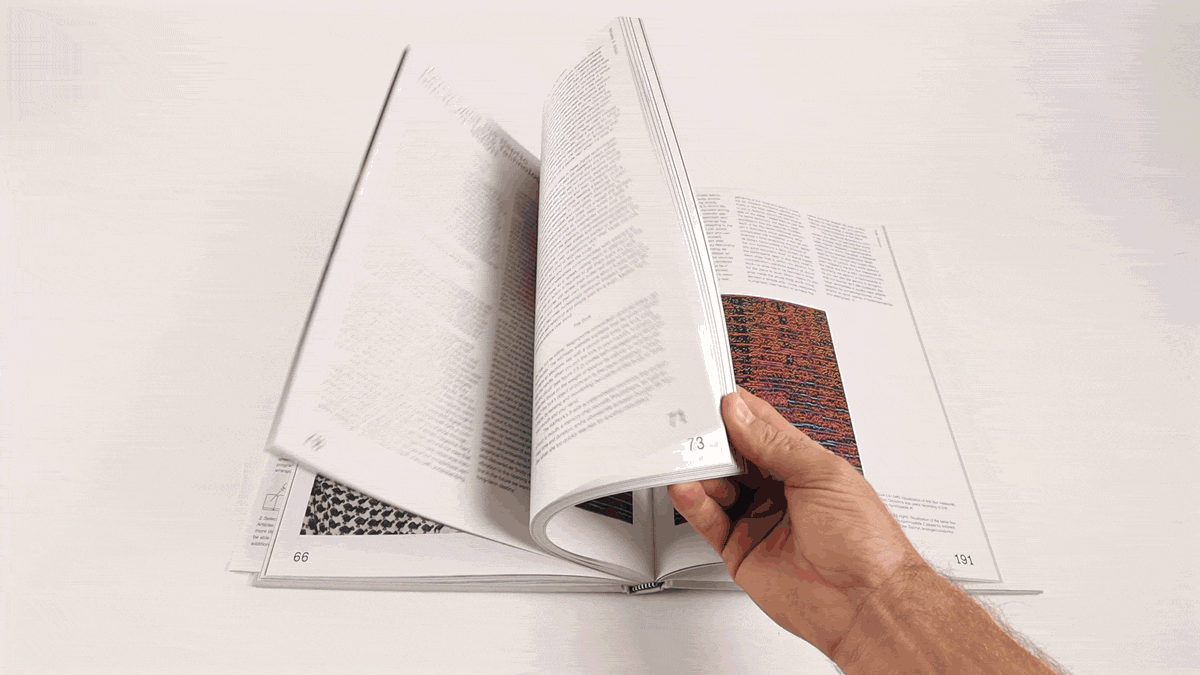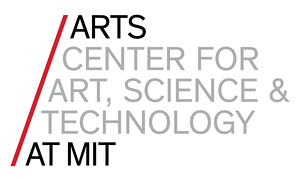Exploring the many ways of being material in the digital age.
77 Massachusetts Avenue, 10-183
Arts at MIT
Cambridge, Massachusetts 02139
USA
arts@mit.edu
At the intersection of art, science, and technology, the book Being Material (2019 MIT Press) explores the worlds of materialities and materialisms today: the unexpected convergences in the practices of artists, designers, engineers, and scientists who work with programmable matter, self-assembling structures, 3D/4D printing, wearable technologies, and bio-inspired design.
The editors and contributors seek to extend our understanding of how material dynamics limit, expand, transform, and/or vivify biological, social, and political lives. Many of its contributions originated in a symposium that MIT’s Center for Art, Science & Technology hosted in spring of 2017.
Edited by Marie-Pier Boucher, Stefan Helmreich, Leila W. Kinney, Skylar Tibbits, Rebecca Uchill, and Evan Ziporyn.
From the editors:
This collection grapples with the material forces that create the objects of such assemblages as the internet of things as well as those other material-digital devices around us every day. That grappling begins with the form of the book Being Material. When we puzzled over how to present this volume, we thought at first that we might create an e-book, or an app, or supply a companion USB stick, or salt the text with QR codes, or even print a circuit on the jacket. How best, we asked ourselves, to bring the tangibility of paper together with the possibilities of the digital?
Our answer starts with the cover and interior pages of this book, designed by E Roon Kang, Skylar Tibbits, electronics/interaction/product designer Marcelo Coelho, and graduate student Lukas Debiasi. If you open the book’s companion website—on any camera-enabled phone, laptop or desktop computer and then point the camera toward the first page of each author’s section, you will unlock films, music, images, and other dynamic content that complement and extend the book’s physical pages.
Machine learning and computer vision enables communication with the website through the unique visual arrangements of images and text on each page throughout the book. The camera recognizes the graphic pattern of the printed page and then orchestrates digital content that can be played and controlled. The content can be as simple as a soundtrack that plays as you read through the book, videos that extend the written text, or a variety of other digital elements.
We think this book offers something unique: a way of employing graphic design, printed ink, machine learning, and computer vision to create a book that is a hybrid of being digital-material.
In order to organize this compilation, at once a compendium of artistic research, a digitally activated object, and a compilation of scholarship across the arts, humanities, and sciences, we explore five different modes of being material—thinking through being programmable, wearable, livable, invisible, and audible.
The contributions in this book take a range of formats—research reports, demos, manifestos, philosophical essays, artist portfolios, and more—exampling the many ways of being material that we hope this book chronicles and advances.


